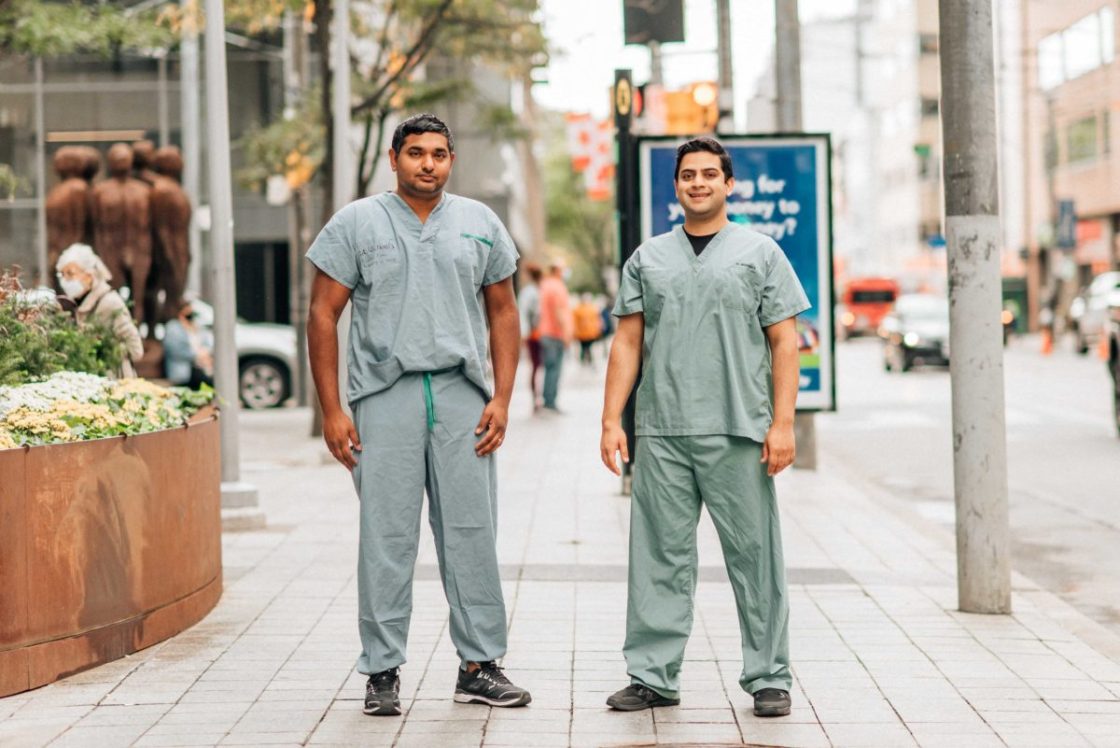His name is Amol Verma, and he runs the Covid-19 Hospital Analytics Lab at U of T
Original author: Courtney Shea
Published: October 6, 2020
Photography by: Erin Leydon
Source: https://torontolife.com/

GEMINI co-leads Fahad Razak and Amol Verma
Your team at U of T’s Covid-19 Hospital Analytics Laboratory focuses on improving the clinical, organizational and systemic responses to Covid. What does that mean?
It means—myself and my co-lead, Fahad Razak, along with the rest of our team—use using the billions of data points generated in hospitals every day to improve care and outcomes, both for people with Covid and for everyone else who comes into the hospital. Once we have the data, we can interrogate it. What kinds of treatments have been successful? What kinds of resources do we need more of? These are questions data can answer with far greater speed and accuracy than any person.
How does this help us approach Covid specifically?
Well, for example, data can help us better understand the optimal time to put a Covid patient on a ventilator. Or it can help us cut down on the bottlenecks in hospitals. My team is also looking at the impact of delayed treatments for people who were dealing with non-Covid medical issues. If we learn, for example, that interrupted care for patients with diabetes led to more leg amputations over the summer, that will help us know what services to prioritize in future waves of Covid.
On top of all that, you’re also an internist at St. Mike’s. Presumably you haven’t slept much. That’s right. My wife is also a physician, and we have a two-year-old daughter at home, so it’s been a lot. Back in March, I had no idea what I was walking into—some of my colleagues and I even bought gas masks because we were worried about running out of PPE. But that’s what we signed up for.
When you think of how freaked you were back then, and where we are today, is it better? Worse? There’s a lot we’ve done right. We came together as a society to bring caseloads down, and it worked. Over the summer, there was a bit of a reprieve, which was important. People can only stay in lockdown for so long.
But is our reprieve to blame for the current situation? Pandemics are cyclical by nature, so the fact that we’re in a second wave doesn’t mean we did anything wrong. The crucial question is: how did we use that reprieve? We’re seeing reports coming out now that we didn’t use it well in terms of managing our lab testing capacity, or by increasing ventilation in schools and reducing class sizes.

